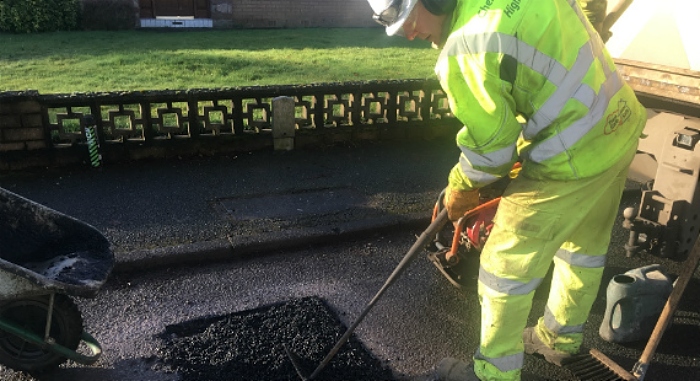
Repairing Cheshire East’s roads will take a staggering 400 years if the investment from government continues at the same rate, writes Belinda Ryan.
That’s the claim made by the chair of the highways committee at Cheshire East Council, Cllr Craig Browne.
Cllr Browne was speaking during a debate on the council’s highways service improvement plan after Cllr Barry Burkhill referred to the poor state of the roads due to ‘chronic underfunding’.
Cllr Burkhill had told the highways and transport committee how the government had cut highways funding over the past year.
“What is needed to maintain the present poor network, we need about £30m a year,” he said.
“If we’re only getting £15m [now] and £19m last year, the poor state of our roads is going to get worse and worse, so government have got to address this.”
Cllr Browne described the funding of the highways service from central government as ‘simply inadequate’.
“It’s incumbent on all of us to lobby our MPs, to lobby government,” he said.
“We’re responsible, as a highways authority, for about 1,700 miles of carriageway and, using the government’s calculation formula, the replacement cost of that 1,700 miles is about £6 billion.
“This year we’ve received £15m from the Department for Transport (DfT) towards the maintenance of that network.
“That £15m represents a quarter of the 1% of the £6bn that’s needed to replace the network or, to put it another way, at the current levels of investment it will take 400 years to repair the whole of our network.”
Committee vice chair Laura Crane (Sandbach Ettiley Heath & Wheelock, Lab) proposed that Cllr Browne write to the DfT outlining the situation and asking for more funding.
This was supported unanimously.
Earlier in the meeting, Cllr Liz Braithwaite (Macclesfield Central, Lab) had asked why pothole repairs only seemed to last ‘a day or two’.
The committee heard that Cheshire East had fixed around 33,000 potholes this year.
Andrew Ross, director of highways and infrastructure, explained that often temporary pothole repairs were done as soon as possible to keep the road safe and to keep it open.
More permanent repairs then followed.
But he added: “Pothole repairs aren’t ever a really permanent solution but I think quite often the public reaction is to those temporary fixes, which are to keep the road open and to keep the road safe for the travelling public and, by their very temporary nature, they are prone to breaking up very quickly, but it is a quick and immediate response for highways safety.”





















We are in Cornwall at the moment. Not seen a pothole but seen many long lengths of completely renewed road surfaces. How can Cornwall Council do it and CEC can’t? I think a new CEC officer is from Cornwall, perhaps they could put CEC in touch with the right person in Cornwall.